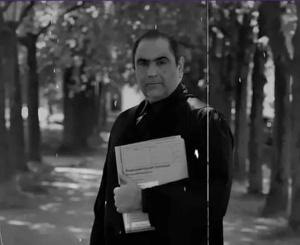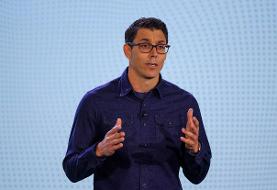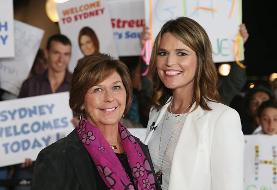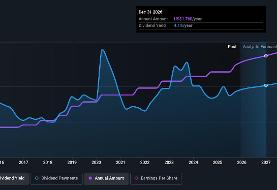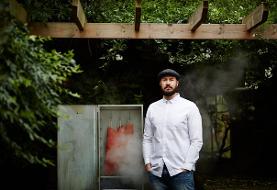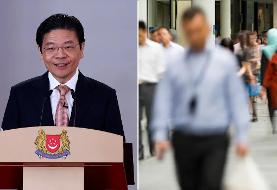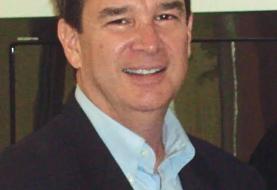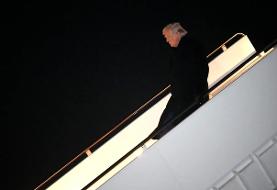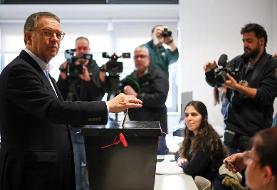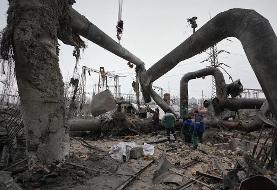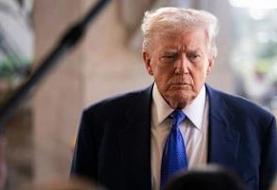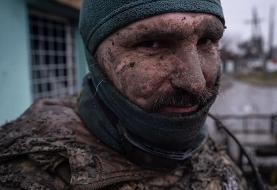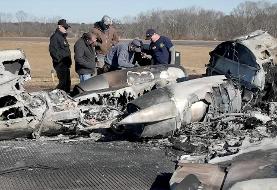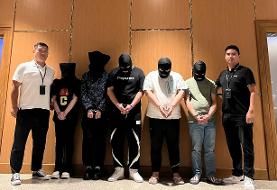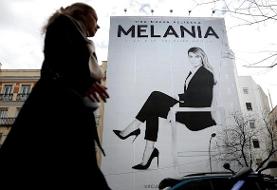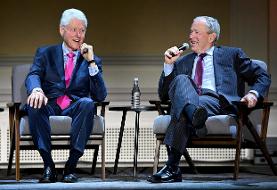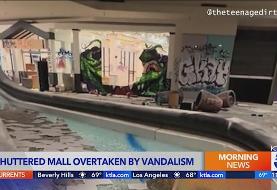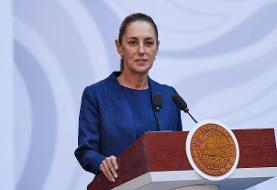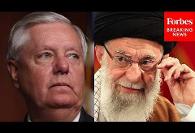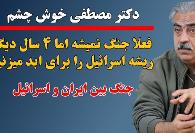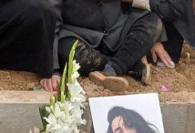INFORMAL with Mohamad Mohebian "Between Iran and America!"
Many know Mohamad Mohebian or simply "Mohamad" for his best selling Persian pop hit "Javuni" (Youth) performed with famed Iranian singer Habib Mohebian (Mohamad's father). About two years ago, Mohamad followed his father in a journey from California to Tehran, Iran. The move came as a surprise and caused controversy given the turmoil and political division among Iranians post Iran's 2009 Presidential Elections. Following his return from Iran, Mohamad talks with kodoom.com, during an interview in the INFORMAL series (This is a summary in English. Full original interview in Persian here):
Kodoom.com: Your short Biography, Please.
Mohamad: I was about three and it was about four years after the Iranian revolution when our family left Iran after my father Habib. He was banned from singing and interrogated on several occasions about his beliefs and connections to this group and that. In reality, Habib did not have any political affiliations. He mainly sings for social and human causes. We stayed in Turkey and then Italy as refugees, and then moved to New York, New Mexico and finally in 1985 to Los Angeles, where the largest population of Iranian immigrants Iran. At 11, we moved to the South Bay area. My father did not like the politics in the Iranian-Americans community there, and felt Los Angeles did not provide a healthy environment for personal or professional growth.
With my name (Mohamad) and my birth place (Iran) I was mocked and even beaten in schools yet I was always proud of my Iranian heritage.
Meanwhile Habib was busy making socially conscious songs in his studio such as "bezan baran" (Pouring knocking rain), or "kharchang haye Mordabi" (Marsh crawlers). These hits all became very popular among Iranians despite backing by commercial record labels.
I have grown up with music since I can remember, as a child sitting on my father's lap and later singing together with him for family and guests. Besides Persian, I know Arabic and inspired by Middle Eastern melodies. In 2003, I finally convinced my father to make a duo album with me. We used help from Alireza Amirghassemi and Masoud Jamali (former partners of a now defunct Tapesh TV). The album Javuni became a record hit and helped me quickly gain recognition in the Iranian market. I also recorded a second album 'Khodeshe' and a few collaborations with other artists, and was also featured in Habib's Album 'Iran Banu' (Lady Motherland Iran).
But successful albums and a worldwide tour contract with Concerto Inc. did not mean financial success for Habib or me. This was mainly due to the breach of contract by the now-defunct Concerto and its directors Saied Siam (a producer of Kamran & Hooman) and a person (nick)named David Valentino. I have been asked both inside and outside Iran about the mysterious political and financial background of this company (Concerto) but I cannot comment much. I just know they canceled several concerts in Dubai (including ours) except ones by Kamran & Hooman, Iranian pop singers. So Concerto's main goal seemed promotion of Kamran & Hooman, for some reason.
Kodoom.com: Tell us about your father Habib? His musical style? myths about him? and your relationship with him?

Mohamad: A series of sad events in Habib's life such as tragic loss of his father, his mother and then his wife and his introspective nature influenced his early songs like "Marde Tanhaye Shab" (Night's Lonely Man Standing) and his blues style. he was also influenced by 60's and 70's Rock musicians like Jimmy Hendrix, as well as soulful melodies from Indian music. Later in life, and after immigration to Los Angeles, Habib wrote and arranged popular socially-conscious songs such as "kharchang haye Mordabi" (Marsh crawlers) addressing social problems and pain caused by an unethical minority among Iranians (both outside and inside Iran).
Habib always liked humanistic songs like those by John Lennon, and in recent years prior to his departure for Iran, he performed songs (attached video) related to bravery of Iranians defending against the 8-year long invasion by Saddam Hussein and Iraqi Army.
My style is pop. Since childhood, Eastern melodies, feelings, lyrics and instruments played with my heart and fed my soul in a special way, from Abdul Bassit's chanting of the Qur'an to Turkish Alaturka and Samime Sanay, from Arabic Om Kalthoum to Indian Ghazals and Qawali songs, and of course songs by my dear father Habib (a composer, lyricist and singer).
Some myths about Habib and me: Habib was born in Tehran and not Azerbaijan. My mother is in fact from Azerbaijan. His decision to move back to Iran was not related to cancer or any diseases. His recent pop style was not dictated by me but requested by producers of our duo album "Javuni" to augment my song. This was partly responsible for the success of the album.
Another myth about Habib is about his political affiliations. Habib does not belong to any affiliations, yet he is a patriotic Iranian performing popular hits about social and patriotic causes. He has never insulted any groups, beliefs or persons. Habib taught me honesty, integrity and patriotism. Underneath his rugged and strong-headed appearance, Habib has a soft heart and a kind spirit. He has been taken advantage of in business settings by unethical folks pretending to be his friends.
Kodoom.com: What was your best and worst moments in Iran?
Mohamad: I was born in Iran but mostly raised in America, so I am caught between the two worlds! I saw some shop owners in Iran give discounts or free products to customers indicating shortness of cash. This is very human and impressed me. On the other hand, I saw shop owners exchanging pleasantry with customers, yet getting into a fist fight with them if the customer indicated shortness of cash and wasted their time! Exchanging pleasant formalities (Persian "Taarof") and niceties, if done without genuine intentions, is a cultural negative in Iran causing communication problems and insincerity.
Another beautiful experience was hearing the spiritual call for prayers ("Adhan") in Iran, which was very calming to me. Hearing Adhan made me especially peaceful at the moment I underwent an open heart surgery in Iran. Unfortunately, however, when I opened my eyes after the surgery I was confronted by an intrusive nurse insisting on taping me while singing! I could barely speak and was still dizzy. This intrusion and lack of respect for individual's private space is another cultural issue among some Iranians.
And last, a perplexing aspect of living in Iran for me was the complex way matters were handled. For example, Habib has been unable so far to publish his recorded video and album in Iran. Some authorities were kind and cooperative yet others not as forthcoming. I was confused and unsure on why a talented and popular singer like Habib without any political affiliations should face such as difficult process.
Kodoom.com: Why did you and Habib surprisingly and suddenly depart for Iran?
Mohamad: ...
See Response in Part 2 of the interview.
Related:
- "Informal" with Dr. Firouz Naderi
- Maz Jobrani Informal Video: Interview in Persian with world renowned stand up comedian
- Part 5 of An Informal interview with Houshang Touzie and Shohreh Aghdashloo (Bedun e Taarof ) Kodoom.com Exclusive
- Part 3 of "Informal" with Maz Jobrani at Kodoom.com
- Part 2: Informal Chat with Maz Jobrani about Tiger Woods, His View on the World, Cultures, etc. Kodoom.com Exclusive
- Part 1: An Informal interview with Maz Jobrani (Bedun e Taarof ) Kodoom.com Exclusive
- An Informal interview with Houshang Touzie and Shohreh Aghdashloo (Part 1: What is success?)
- Informal with Maz Jobrani: About His Bio, His Views on Tiger Woods and Other Issues
»This is a summary of the original feature in Farsi. To request a more extensive translation of the Farsi text, please contact us.


